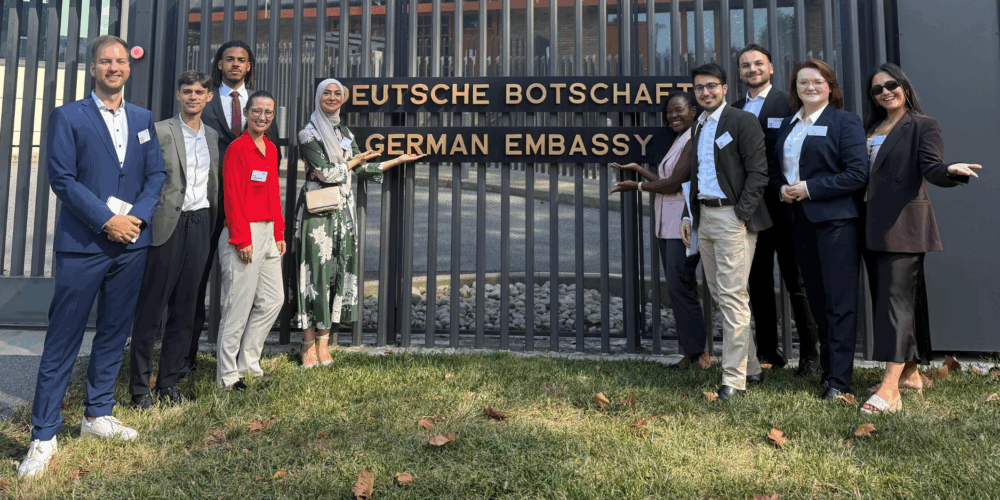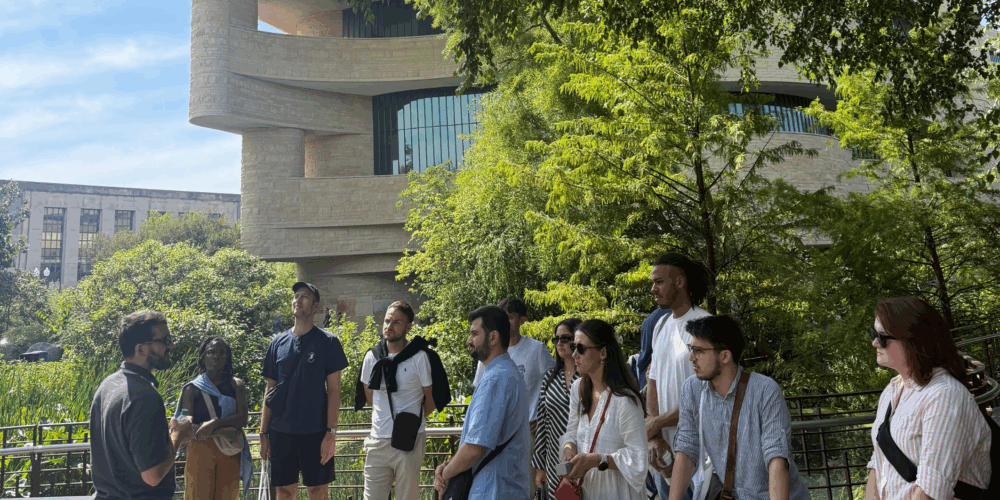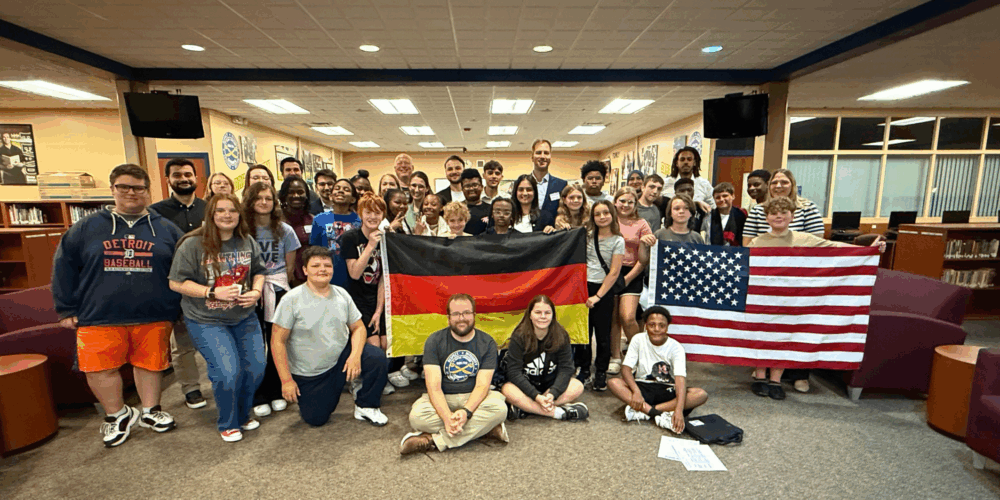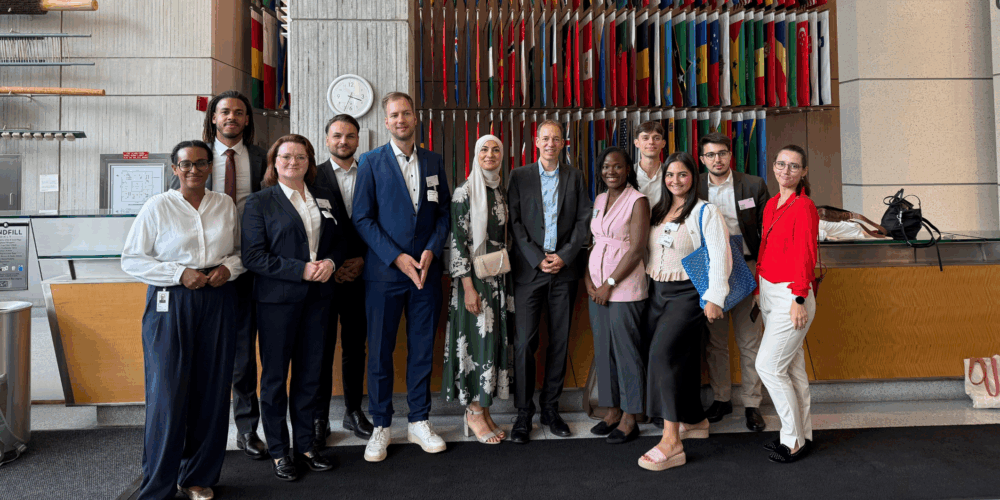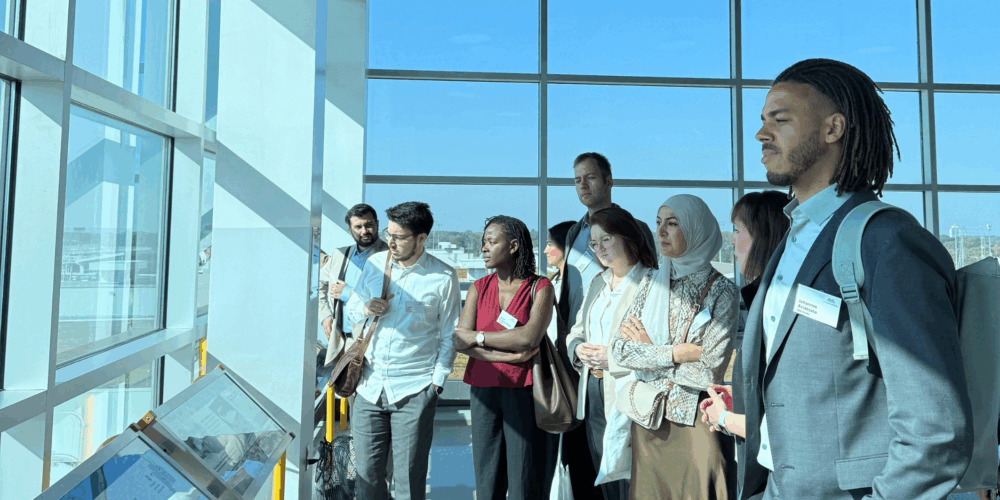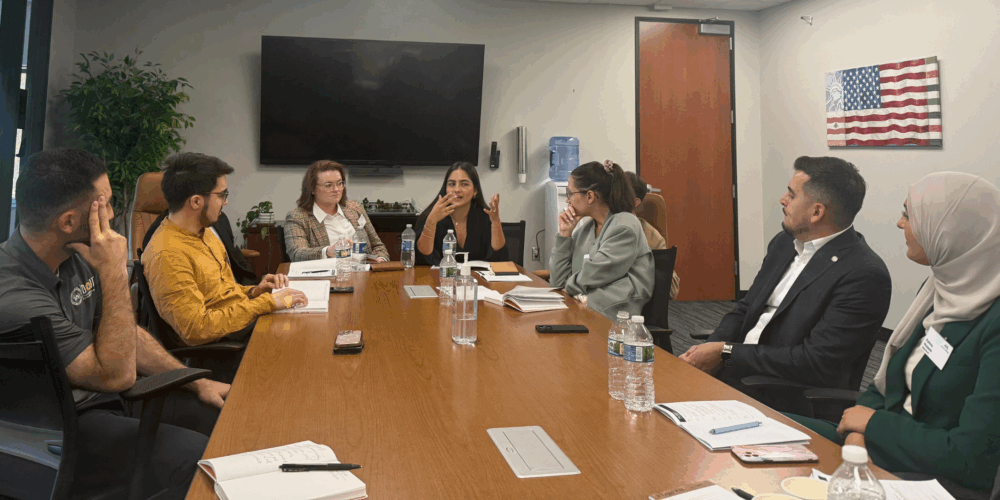„A Reorientation of the Partnership on an Equal Footing“
In September 2025, the third German cohort of the New Bridge Program took part in an intensive exchange in the United States. Ten young professionals and emerging leaders from diverse fields – including technology, medicine, the military, political consulting, regulation, and law – came together to explore the transatlantic dialogue from new perspectives. In the following, Fellows Şirin Tiryaki and Mateo Blazevic share their impressions and insights.
The program began in Berlin, where we first got to know each other and received an initial thematic introduction through discussions with representatives from politics, academia, and public administration. Particularly memorable was the lecture by Prof. Sebastian Jobs from the John F. Kennedy Institute at Freie Universität Berlin, who vividly traced historical trajectories of U.S. politics and society – from American exceptionalism to the role of migration in shaping the economy and national identity.
In Washington, D.C., we met with stakeholders from politics, media, and civil society. Conversations at institutions such as Future Caucus, NBC News, and the State Department provided a multifaceted view of American perspectives on security, democracy, and social change.
The third part of our journey took us to Detroit, where the realities of structural transformation and social change became immediately tangible. Discussions with representatives from Ford, trade unions, local initiatives, and city government underscored how closely economic renewal and social cohesion are intertwined. Detroit thus became a powerful symbol of how societies can actively shape change.
Transatlantic cooperation in transition
The discussions in Washington, D.C. confirmed that the transatlantic partnership continues to be a high priority for the United States. Europe is seen as a key factor for stability, and Germany is expected to take on more responsibility in security policy – particularly in cyber security, defense innovation, and energy independence. This stance makes it clear that it is less about US withdrawal and more about a reorientation of the partnership on an equal footing.
This impression was also confirmed at the German Embassy in Washington, D.C., particularly with regard to the media’s perception of the supposed isolation of the US. It was noticeable on the ground that the United States continues to attach great importance to multilateral cooperation, especially on issues such as climate protection, technology policy, and global security. American foreign policy today pays greater attention to its own interests, but continues to see international cooperation as a key instrument for tackling global challenges.
“The US expects Germany to take on a stronger leadership role within Europe”
At the US State Department, Paul Stucky, German Desk Officer, elaborated on this perspective. The US expects Germany to take on a stronger leadership role within Europe, particularly in building joint security architectures, supporting Ukraine, and countering authoritarian influence from China and Russia. Germany is seen as a bridge builder whose diplomatic credibility and mediation skills are crucial. The discussions showed that transatlantic cooperation is being redefined. It is evolving from a unilateral security guarantee to shared responsibility based on common values and mutual reliability.
Detroit as a mirror of structural change
Detroit showed that economic change is always also a social process. In discussions with initiatives such as the Design Build Green Hub and activists such as Martina Guzmán Miranda, it became clear how closely issues such as urban development, social inequality, and trust are linked. Unlike Germany, where the state often organizes structural support, many U.S. cities rely on local initiatives, philanthropic engagement, and cooperation with companies.
“Electromobility is understood not only as a technological transformation, but also as a social one”
Visits to the Ford Rouge Electric Vehicle Center and United Auto Workers Local 600 made the profound industrial change tangible. Here, electromobility is understood not only as a technological transformation, but also as a social one. Trade unions, companies, and urban society are working together to find ways to combine innovation with social stability. This approach can also be inspiring for European regions undergoing structural change.
The conversation with Abdullah Hammoud, the first mayor of Arab descent in the US, was particularly impressive. In Dearborn, we experienced how diversity, integration, and community strength can intertwine. The city is a prime example of active representation, civic engagement, and economic resilience. These encounters showed that social progress can only succeed if political participation and economic development are considered together.
Conclusion: New answers to old questions
Our trip made it clear that the transatlantic partnership is facing a period of renewal. In Washington, it was evident that the US expects initiative from Europe, not distance. In Detroit, it became apparent that change can only succeed when community, innovation, and inclusion work together. The supposed contradictions between economic transformation and social justice or between national interest and international responsibility cannot be completely resolved, but they can be constructively renegotiated.
The insights gained on site were not always clear-cut, but they always opened our eyes to a relationship characterized by pragmatism, mutual respect, and a shared desire to shape the future. This is precisely the bridge that the New Bridge Program is building and that we would like to continue to strengthen in the future.
We would like to thank Atlantik-Brücke, in particular Laura Vogel and Muhammed Ali Sen, for the excellent organization of the program, the Joachim Herz Foundation for its support, and all those who welcomed and accompanied us so warmly in Berlin, Washington, D.C., and Detroit. We look forward to now being part of this valuable network and actively shaping the transatlantic dialogue.
Fellows Johannes Aclassato, Fatima Hussain, and Oleksii Kysliak also shared insights they gained from the program. Watch the interviews here:
New Bridge to the US is supported by the Joachim Herz Foundation.







